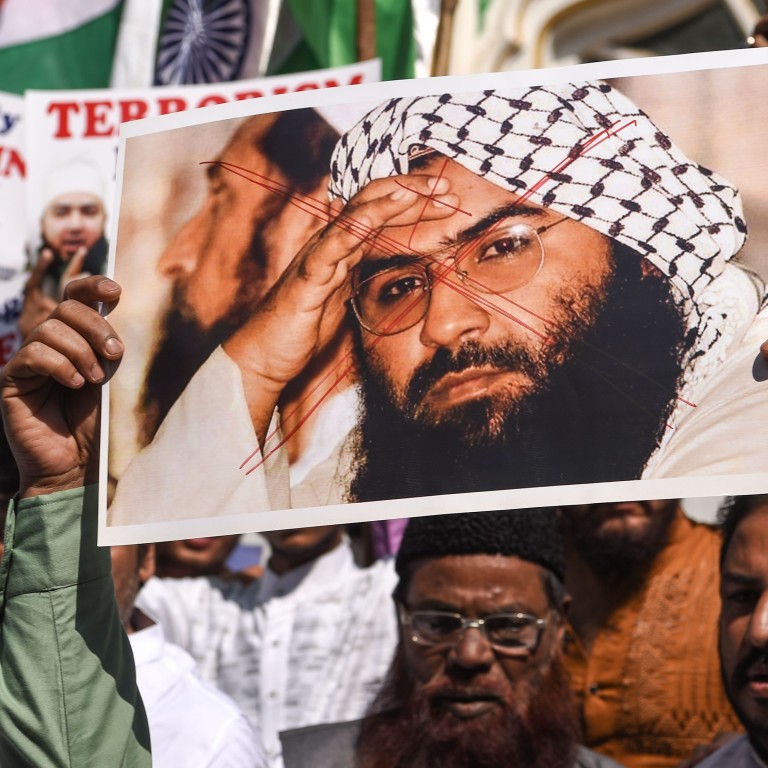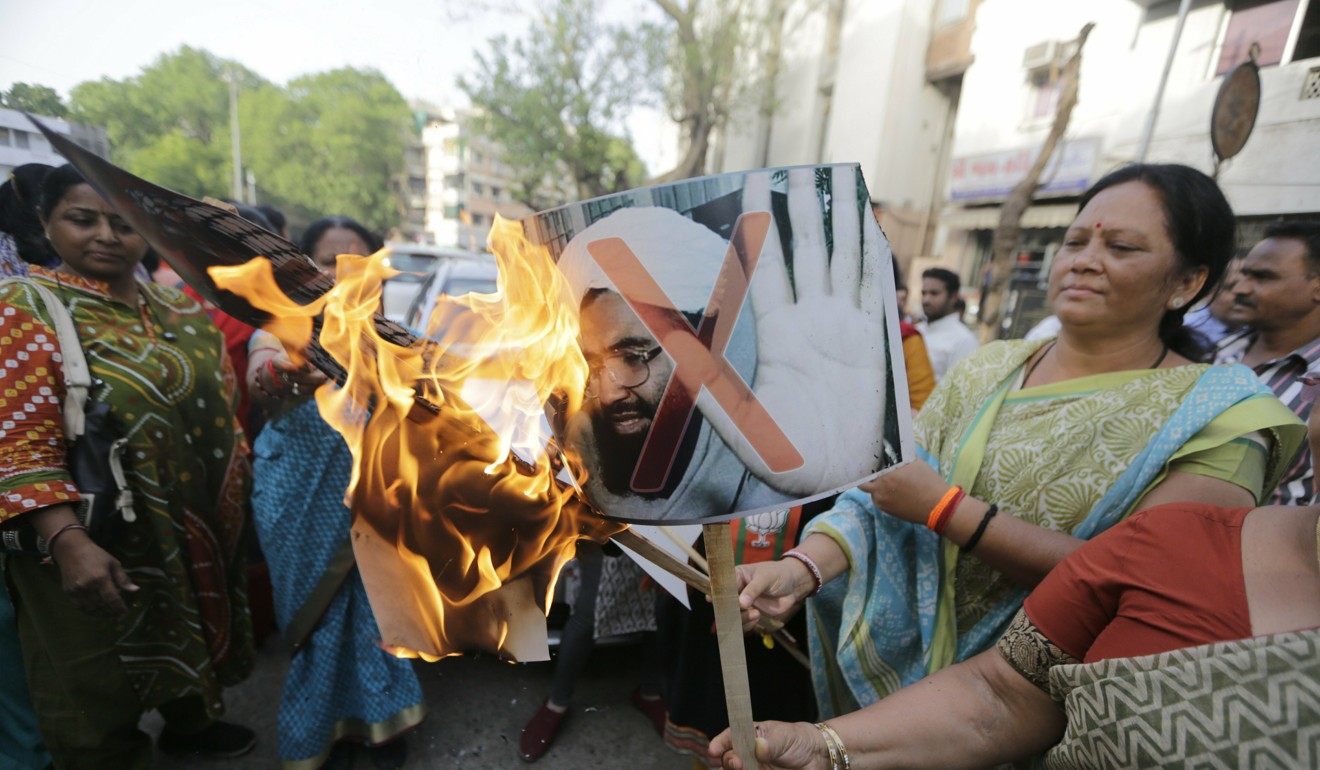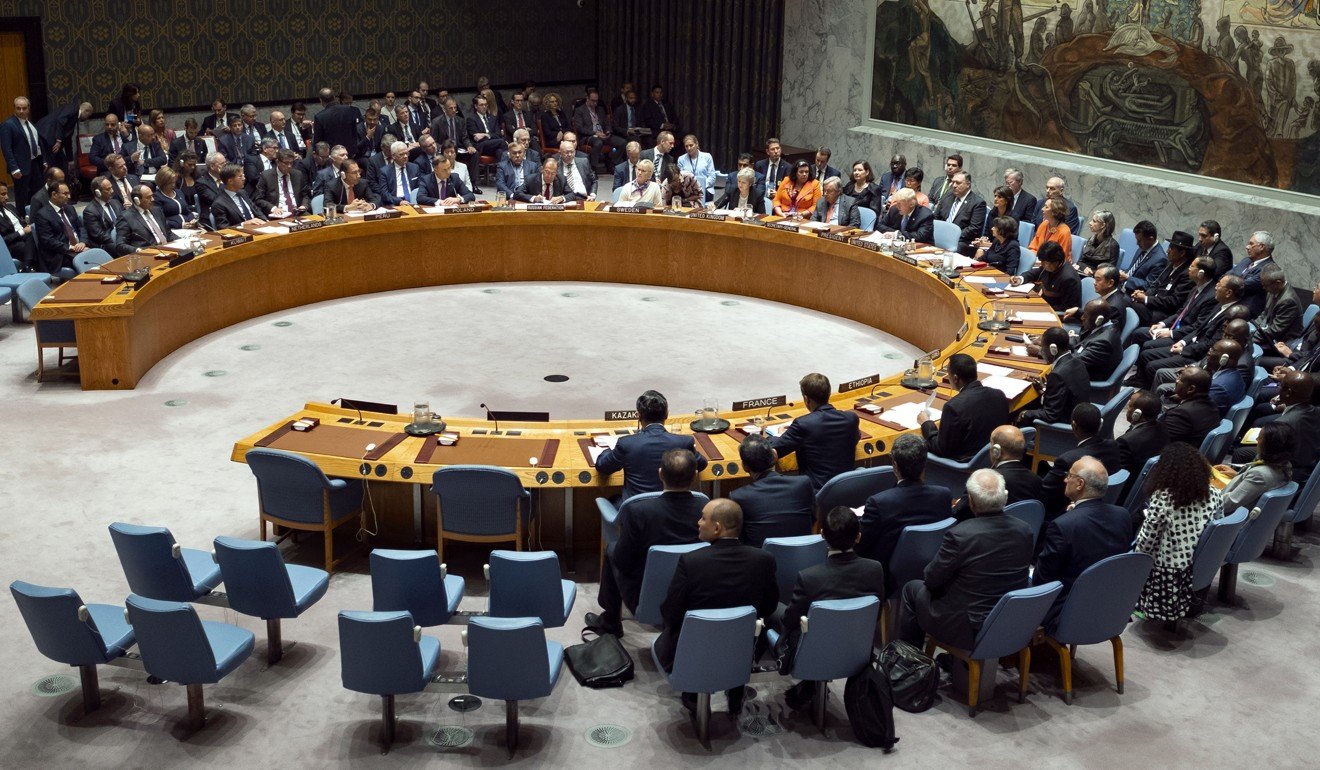
Will US reward China for ‘sacrificing’ Pakistan terrorist Masood Azhar?
- Beijing’s support for UN sanctions on the Jaish-e-Mohammed leader has cleared the way for better relations with both Washington and New Delhi
China’s decision to support Pakistan-based terror chief Masood Azhar being sanctioned by the United Nations has been attributed to various factors, including Beijing’s concerns about being isolated diplomatically as fears of global terrorism rise.
But it also reflects the strong push on the issue by the United States, both openly and behind closed doors.
Masood, the leader of Pakistan-based Jaish-e-Mohammed that bombed and killed 40 Indian troops in the disputed state of Jammu and Kashmir on February 14 this year, had been a free agent, with a UN proposal to subject him to an assets freeze and travel ban, among other things, put on hold by Beijing.
But after the incident that brought India and Pakistan dangerously close to war, the US, UK and France moved a draft resolution in the UNSC (United Nations Security Council) to blacklist Masood.
Pakistan’s stance on militants alienated the US. Is China next?
China, which had not wanted to anger its long-time ally Pakistan, was put in a difficult spot since it would have to place on record its objections at the UNSC.
With the US-China trade war raging and uncertainty in the continuing trade talks, Beijing may have thought it prudent to yield some space to Washington on the Masood issue for the sake of mending fences.
In other words, “sacrificing” Masood would not cost Beijing much.

Beijing has also been watching closely the Trump administration’s emphasis on India, the neighbour with which it shares a border, in its Indo-Pacific strategy. The US strategy aims at raising America’s profile in the region and includes India as a key partner.
In the aftermath of the Pulwama terror attack of February 14, the US National Security Adviser John Bolton publicly announced that the US supported “India’s right to self-defence” while Secretary of State Mike Pompeo tweeted “we stand with India as it confronts terrorism. Pakistan must not provide safe haven for terrorists to threaten international security”.
Why is the US trying to bully Pakistan with empty China threats?
New Delhi and Washington are already coming closer than ever and this is certainly not what Beijing would want. India has drastically increased its purchase of US-made weaponry, the induction of the US-made heavy lift CH-47F (I) Chinook helicopters by the Indian Air Force being a recent example. Meanwhile, American defence sales to India are expected to reach an estimated US$18 billion this year while American civilian manufacturers are also eyeing the Indian domestic aviation market.
Beijing stands to gain from lifting its hold on the UN proposal. In the aftermath of the US decision to end waivers for countries buying Iranian oil, it would be in China’s interests to join ranks with India on this issue as it is unlikely either country will completely stop importing Iranian oil.
In addition, Beijing has realised that Pakistan is on a sticky wicket when it comes to terrorism. China has already invested a lot of money in the China-Pakistan Economic Corridor (CPEC) and would be wary of its investments going up in smoke if India-Pakistan skirmishes continue. The fact that India upped the ante with air strikes deep inside Pakistan after the Pulwama attack has made China sit up and take notice. It is worth noting here that China did not overtly criticise New Delhi after the air strikes.

Washington has not hidden its discomfiture with Pakistan ever since the Trump administration took over. Although Pakistan is an important factor as Washington negotiates a pull-out from Afghanistan, Washington has made it clear it will not be held hostage by Pakistan’s “blackmail” on this issue. The Pakistani ambassador to Kabul had earlier threatened that if India attacked Pakistan in the aftermath of the Pulwama attacks, the Afghanistan talks may be jeopardised. However, his bluff has already been called.
With CPEC, Pakistan risks Chinese anger by courting Saudi Arabia
In the recent Masood Azhar saga, the US’ influence was clearly seen. However, this is not the end of the story. New Delhi is also piling on the pressure to have Pakistan blacklisted at the FATF (Financial Action Task Force), the next meeting of which will be held in June in Washington. US-India ties have been clearly on the upswing and on the Masood issue, Beijing clearly saw the writing on the wall. However, it will be worth watching whether Beijing’s gamble to lift its chokehold on Masood’s blacklisting will pay off in its ties with Washington.
Masood Azhar was a key issue dominating India’s ties with China. Now that he is out of the way, the neighbours can focus on those areas where they might be able to work together. At the end of the day, it is in Beijing’s interest to keep its channels of communication open with both New Delhi and Washington.
Rupakjyoti Borah is with the Institute of South Asian Studies at the National University of Singapore. The views expressed are personal

